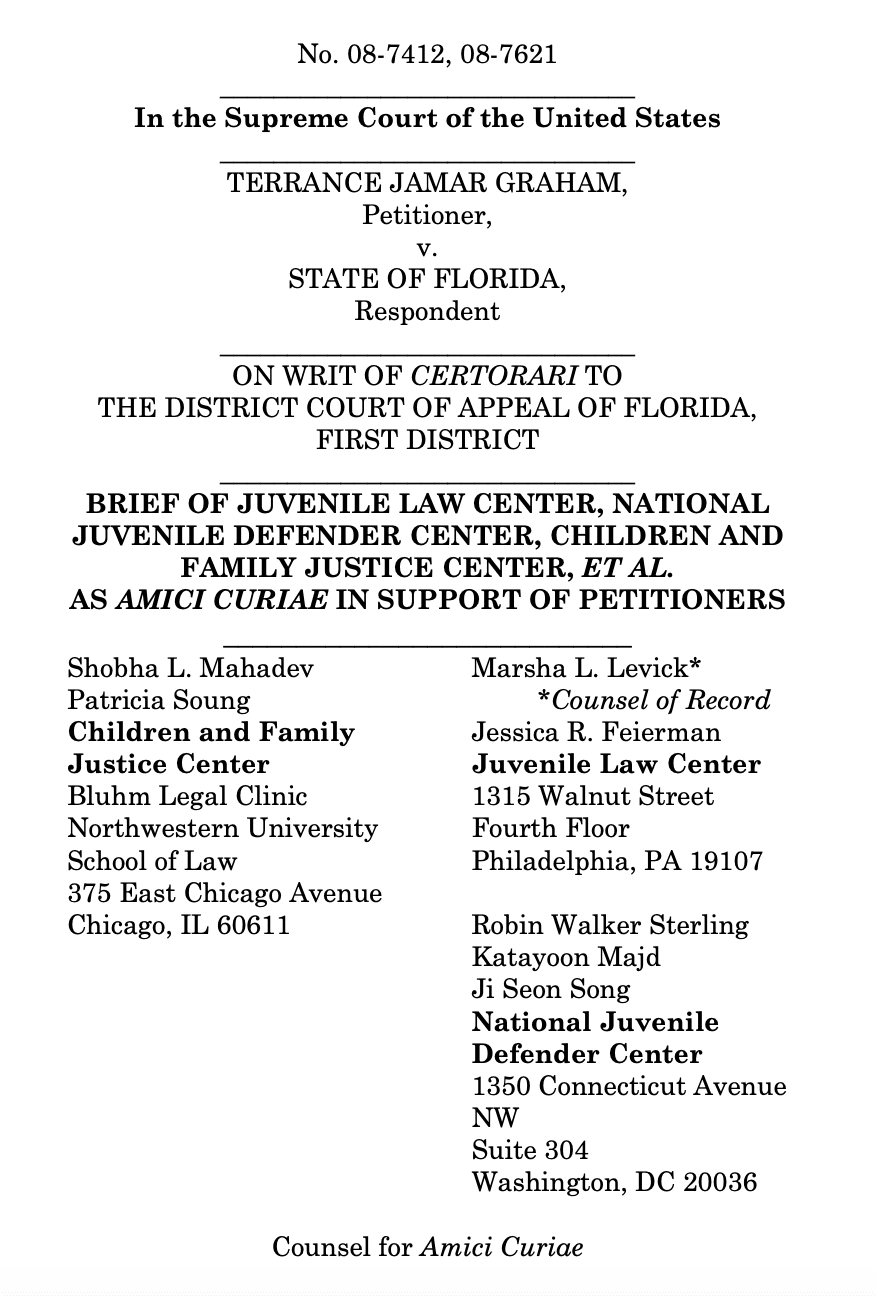
Summary of Argument
In Miranda v. Arizona, this Court recognized that “rights declared in words might be lost in reality.” 384 U.S. 436, 443 (1966). Thus the Court not only stated a broad principle regarding Fifth Amendment rights, it also outlined the specific procedures needed to protect an individual from making a compelled confession. Id. Without considering the age of the suspect in a custody determination, adolescents will be effectively excluded from the protections and guarantees of the Fifth Amendment.
It is now well settled that youth status bears on legal status. The “kids are different” doctrine for the purposes of constitutional jurisprudence is a principle firmly established in the decisions of the Court. In recent years, the doctrine has been buttressed by a burgeoning body of social science and neurological research demonstrating that the differences between youth and adults are psychological and physiological, as well as social. See, e.g., Graham v. Florida, 130 S.Ct. 2011 (2010); Roper v. Simmons, 543 U.S. 551 (2005). The Court has thus repeatedly recognized that to make constitutional rights a reality for youth, an adolescent’s age must be taken into account.
The facts of the instant case involve the interrogation by law enforcement of a thirteen year old middle school student in a closed conference room undertaken by both law enforcement and school administrators. The relevance of age to the Miranda custody determination is a question of first impression for the Court. However, the question does not arise in a vacuum. Ample precedent in this and related areas support a holding by this Court that age is an objective factor that must be considered in determining whether a reasonable person would have felt free to terminate an interrogation.
For example, this Court has already acknowledged that youth are more susceptible to coercion and outside pressure, and specifically more susceptible to coercion during police interrogations. See, e.g., Haley v. Ohio, 332 U.S. 596, 599 (1948); Gallegos v. Colorado, 370 U.S. 49 (1962). Moreover, this Court has previously recognized the special vulnerability of youth to social and other pressures in the school setting, both because attendance at school is compulsory and because of youth’s inherent deference to authority. See, e.g., Lee v. Weisman, 505 U.S. 577, 592-93 (1992).
This Court has also highlighted the importance of providing “clear guidance to the police” regarding interrogations. Yarborough v. Alvarado, 541 U.S. 652, 668 (2004). The consideration of age serves this goal. Age is an objective, categorical and knowable characteristic, rather than a personal idiosyncrasy that an officer could not be expected to know at the time of interrogation. Indeed, as evidenced by state statutes, case law and police manuals, officers throughout the country routinely take age of the suspect into account at the point of interrogation.
As Amici demonstrate below, a child does not perceive of or respond to an interrogation in the same way as an adult. By refusing to make the consideration of age a part of the Miranda custody determination, the North Carolina Supreme Court prevents adolescents from receiving the protections of the Fifth Amendment. It is precisely this disconnect between abstract rights and reality that the Miranda Court cautioned against.
Amici respectfully request that this Court reverse the North Carolina Supreme Court and hold that age must be considered in Miranda custody determinations.